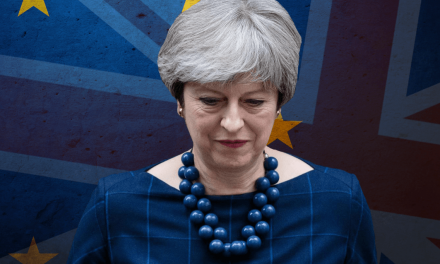Sometimes in history ideologies arise that transcend national borders, such as the anti-Catholicism of the 1600s, or the revolutionary fever of the early 1800s. In recent periods, we have seen the fight against communism and the related battle between Keynesian economics and monetarism.
Yet when the ideological fervour has calmed, it is the nation-state that resurges and fills the vacuum that the ‘idea’ has vacated. The rise of nationalism across Europe is testament to this: as the vacuous European Union struggles from crisis to crisis, so have far-right parties and nationalism across Europe emerged.
Salmond’s Scotland and Putin’s People
In their own ways, Salmond and Putin are dealing with the same issues. Salmond is trying to destroy the United Kingdom for personal glory by creating an idea of a separate people called the Scots, despite the millennia of intermarriage and migration between England and Scotland. He is attempting to break that country which is one into two distinct nations in people’s minds, and then claim the concept, but not the reality, of independence.
The ‘independence’ reality will be economic and political dependence on England and Brussels, with reduced clout to actually achieve anything. Salmond’s dark underside, that he is unwilling to share power democratically with London, but willing to be subject to Brussels, will be exposed. He will then blame London-based financiers and a ‘Westminster conspiracy’ for Scotland’s troubles to clearly define the ‘other’ from himself.
Putin, President of a country that has over 180 different nationalities, is also trying to unite the people into a force that is identified by its opposition (to the West). Like Salmond, he is trying to forge a political construct of an ‘us-against-them’ mind-set, with the difference being that Putin has the gold and resources to stand Russia on its own two feet.
Media manipulation
Both Salmond and Putin have benefitted from the media. The print, broadcast and advertising media are the most powerful sources of societal control available today, hence Putin’s record-level approval ratings despite Russia verging on the edge of an economic recession. Control over information is control over people’s minds, hence the focus on history and the ensuring that text books in Russia tell the ‘correct’ version of events. Control of a population must take place at every level.
Salmond has benefitted from the media too: viciously insulting social media campaigns, generally supportive BBC coverage, and the legacy of Mel Gibson’s historically ignorant Braveheart has seen support for the SNP significantly rise. It is no surprise that the SNP has taken many Labour votes: both parties tend to feed off disgruntlement and envy of what other people have.
The notion of nation
While John Kerry and Angela Merkel decried Putin’s forceful acquisition of Crimea as nineteenth century diplomacy, it would appear that the underlying sense of nationhood and that connection with land remains the real reality in human affairs.
This generally conservative view recognises that places and landscapes shape us as people, and that the soils in which we bury our ancestors are the same as the ones that now feed us. Our connection to place is also our connection to the past, present and future. Crimea historically was a part of Russia for a long period of time, and a majority of the people living there associate themselves with Russia.
This connection with place drives Russia’s actions over Ukraine, which is historically inextricably linked with Russian identity. Talk of a fight between brothers in the Russian media is not far wrong; but Ukraine also demonstrates the difference between Putin and the USSR: Putin is a nationalist, seeking lands that historically Russia has a good claim to. NATO’s scaremongering over threats to other Eastern European states that were never truly part of Russia is just that: scaremongering.
Salmond too identifies with a clear geographical area which has a tradition of mildly different political and legal institutions. Politically, the same people who vote SNP now could also be found in the North of England, as this area too lost out under Thatcher’s reforms. But Salmond’s nationalism, like Putin’s, has a clearly defined geographic limit; his plan covers a clearly defined political constituency.
Lessons to learn
The Westminster politicians should take heed. The nation-state is a potent force that can outlast ideologies that come and go. Give the Islamists something about Britain to be inspired about as a way of defusing the attraction of jihad.
The future of the EU also falls further into doubt, particularly given the rise of nationalist parties across the continent. The threat of a Russian invasion, the need to work together to save the Euro; all of these have been milked by Brussels to try and save the EU; but fundamentally it was born of an idea that holds far less traction than that of the nation-state. The EU has no fixed geography, having consistently expanded since it was launched; it has no history of success to call upon; and it has no single language.
Lastly, there is a need for greater devolution across the United Kingdom (and yes, that involves bringing power back from Brussels). Scotland can reasonably ask for more devolved power (and will receive it); but seeking dependence via the ‘yes’ vote is cutting off the nose to spite the face. There must also be limits: the Scottish Highlands have traditionally opposed the Lowlands; will they too seek independence from each other?
The fundamental question is: will Westminster hear the cry for greater local power in time, while also providing a vision for the country?

